
Empowering Women
Before my second trip to Indonesia in 2014, I attended a prayer meeting where a stranger prayed for me and said, "I see you working with women." I smiled and quipped, "That's going to have to be God."
I then told him a story from the prior year of me sitting in a conference with hundreds of cocoa farmers. The whole room erupted in laughter when a speaker corrected himself from “ladies and gentlemen” to “lady and gentlemen” because I was the only lady in the room.
I'm delighted that much has changed in the last ten years. The first ten origin makers featured on our Origin-Made Marketplace are all led or co-led by women! It was NOT our intention, though maybe it was God's.
With that, I'd love to introduce you directly to a few of these women, to hear their stories and learn how our choices can continue to create opportunities for women.
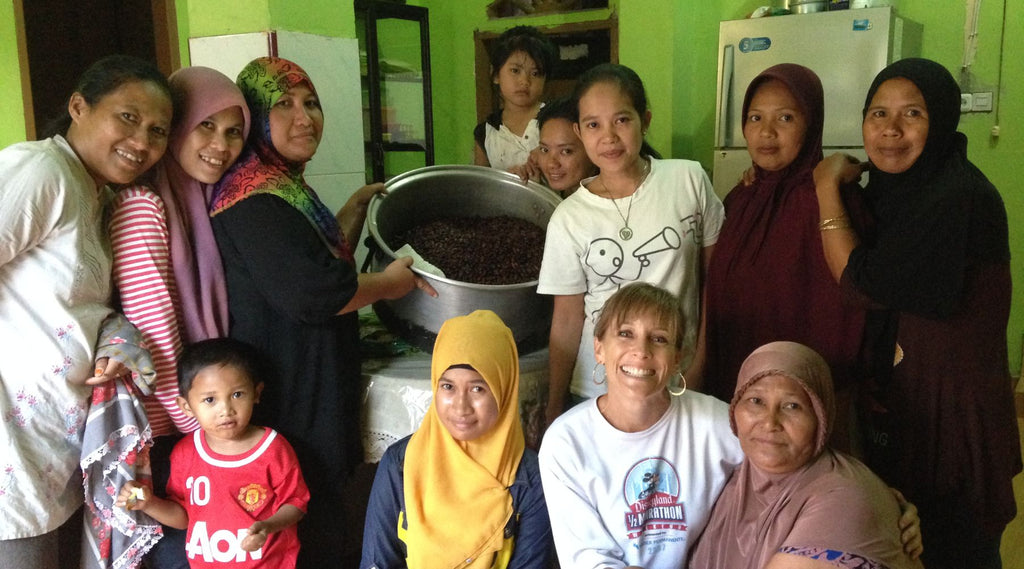
FARMS & KITCHENS
For context, in most rural cultures globally, men are in the field and women are in the kitchen. Exporting raw cacao beans has unintentionally excluded women from the income equation for nearly half a millennium. In contrast, creating food products in farming communities and origin countries is much more likely to bring jobs to both men and women. This is one of countless reasons why we support origin-made products.
TRAILBLAZING WOMEN
Because most cocoa is exported as a raw commodity, the crop is still primarily a man's world. Like me, the women you'll read about have been thrust into countless situations where they may be the only woman. And they're thriving.
I invite you to meet these women on our pages and see the common threads across their stories from around the world.
Sandra Marleny Soriano Ortega (Marleny) from Coagricsal, a coffee and cocoa cooperative in Honduras, was dubbed "the female representative of the coffee industry" and has an unbelievable story of how she and several female co-workers have been empowered.
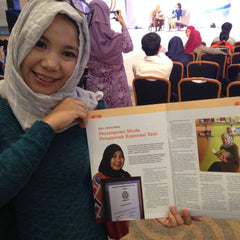
Before age 30, Ayu Antariksa Rombe (Ayu) from Koptan Masagena was voted the first female head of a farmer coop (for any crop) in her regency of North Luwu, South Sulawesi, Indonesia. She is one of many women rising in the ranks of their large cooperative.
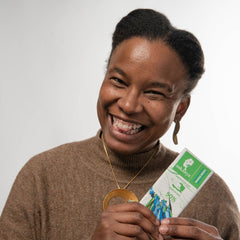
With an engineering undergrad and MBA, Corinne J.S. Symietz (Corinne) of Askanya in Haiti is no stranger to male-dominated settings. Askanya was likely the first female-led origin-made bean-to-bar chocolate sold in the US. It employs an all-women chocolate-making team and 20% of the cocoa farmers from whom they source are women.
Mashpi Chocolate in Ecuador, a family-owned business led by both Alejo and Agus, made the counter-cultural decision to locate its chocolate-making near the farm instead of the city to provide opportunities for local indigenous women and to alleviate migration pressures.
Emily Urías (Emily) of Belú Cacao in El Salvador was the first woman-led bean-to-bar chocolate maker nationally. A step she may not have had the confidence to take if her parents, husband, and overseas education hadn't empowered her.
GREAT MEN NEEDED
Hear me clearly when I say we need and should celebrate BOTH men and women in cocoa and chocolate. As you read our accompanying blogs, you'll learn about amazing men who championed the careers of incredibly accomplished women like Marleny in Honduras, Ayu in Indonesia, or the whole team of women at Mashpi in Ecuador.
I applaud Don Oscar’s response to a large prospective overseas buyer when the buyer asked Marleny if he could speak to a man, "If you won't do business with a woman, we won't do business."
Mashpi’s approach to locating near rural women and also investing in their training and education will change the current generation and set the standard for the one to follow.
Is it any wonder that the cultures created by Don Oscar at Coagricsal in Honduras, Pak Mustamin of Koptan Masagena in Indonesia, and Alejo of Mashpi in Ecuador attract more women?
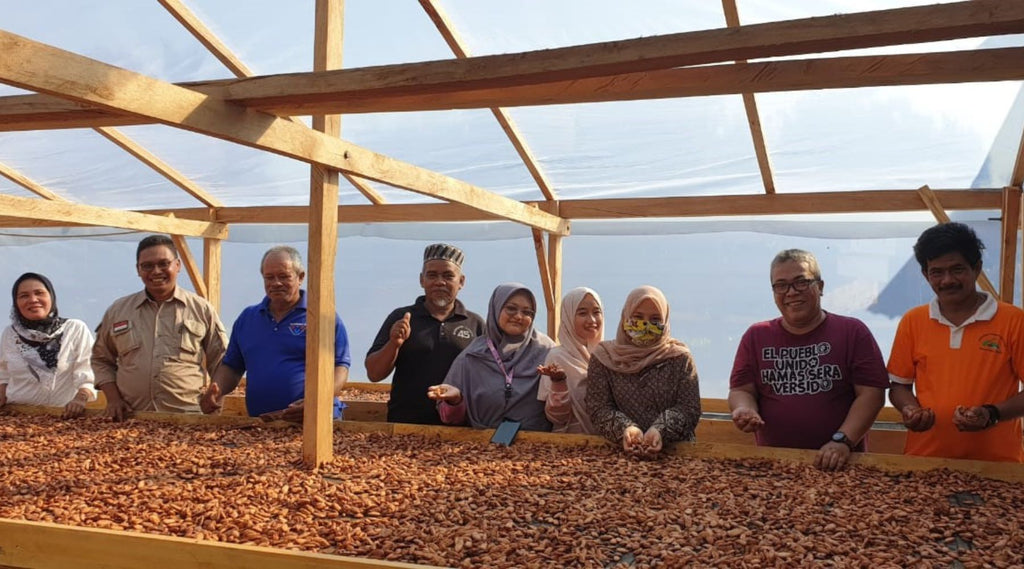
NOT ALONE
Unless you've seen it firsthand, it's difficult to imagine the impact rural poverty has on families – both men and women. Frequently, when income from farming is insufficient, men migrate to the city to find work, leaving women and children behind. Even when men are still present, the heavy burden of unpaid household work carried by women leaves them with devastatingly few employment opportunities.
As you’ll see in Mashpi’s, Emily’s, Corinne’s and Ayu’s stories of their women-rich teams, there is camaraderie and support that mimics family. Each has been placed in a team to grow, thrive, and heal - particularly for Mashpi and Belu.
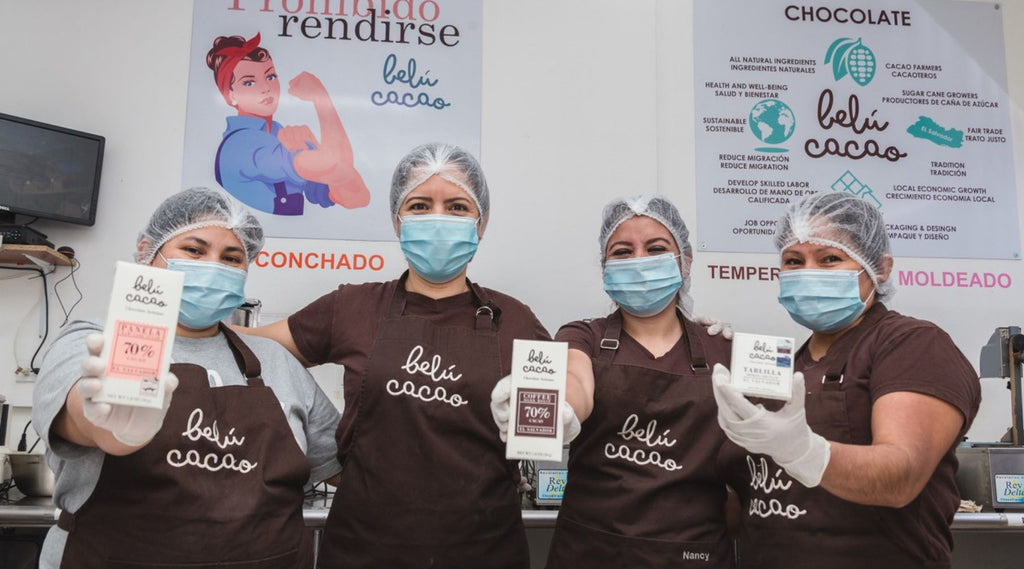
CHOCOLATE MAKERS AND LEADERS
Read Ayu’s, Mashpi’s, and Emily’s stories closely and you’ll spot women finding and recognizing the strength of their voice and worth of their work. In each one of these businesses, women lead the chocolate-making efforts. Not because of empowerment, equality, or social pressure – but because they're qualified. Isn't that beautiful!? Finally, women are designing and creating products that women have purchased for the last century or more!


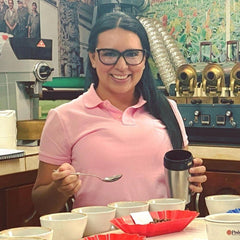
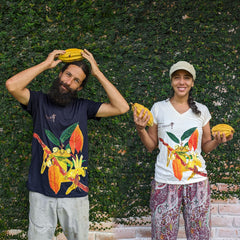
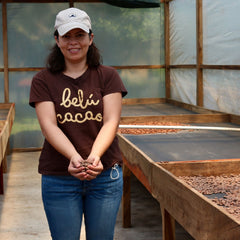
Leave a comment
This site is protected by hCaptcha and the hCaptcha Privacy Policy and Terms of Service apply.